A plan is a necessity to any project and can significantly impact a company’s profitability. In project planning, there is a timeline, and sticking to that timeline will nearly guarantee a project is completed on time and on budget – and what many call a successful result. But what happens when a project plan gets derailed by common timewasters on the job? How can your company cut the loss of productivity that derails the project?
Hire Skilled Quality Workers
First, a worker who is not properly trained can detriment the success of any project.
Scott Boddy, general manager at LEAD Dallas, Ft. Worth, is no stranger to finding workforce solutions for a company. “We work with our clients to find solutions, and one of those solutions is placing quality workers who are skilled in their trade and leaders in the workforce.” Using unskilled and unqualified workers requires handholding and training which brings on a myriad of other issues, often leading to project delays and negative impact on the bottom-line.” Scott says although unskilled workers can delay project timelines, there are many other causes of loss in productivity – whether in a skilled trade or professional environment.
Smartphones and Online Distractions
Smartphones are considered among the most innovative tools in the world, providing connectivity unlike any other mode of communication. In fact, many businesses now rely on their employees’ personal smartphones to conduct daily business. However, smartphones and other compact digital devices have been called the number one time-suck of the century. Scott says, “I don’t think I know of anyone who hasn’t had the intention of answering a text or doing a simple search on Google who then finds themselves 10 minutes later looking at Youtube videos or Instagram stories. This happens in the workplace more than you realize.” Asking your employees to place their phones on do not disturb mode is one way to minimize the disruption. Setting ground rules and policies for phone use on a job site or in the workplace can also help squelch the loss of productivity.
Workspace Clutter
Physical clutter competes for your attention and adds stress and anxiety, according to Princeton University Neuroscientists. A workspace, whether in the office or in the field, should be kept organized and clutter-free which in most cases leads to an increase in productivity. Scott explains, “Clean and de-clutter your space. Then, the next time you use a tool or piece of equipment, put it back in its place. Or, if you are in an office, immediately file that folder after you are done reviewing the contents. This may sound simple, but the organization does not come easy for many people.”
Chatty Co-workers
Water-cooler gossip is real. Companies with open space, cubicle, and on-location worksite environments face the challenge of chatty workers. “It’s one thing when workers are discussing job-related topics, but when you find co-workers talking about what they had for dinner last night, that’s a different story,” says Scott. How do you combat the office talk? Project leaders and managers can help by redirecting workers to office or project topics to help them get back on task.
Monotasking vs. Multitasking
Multitasking is considered a good trait in any worker and is found as a selling point on resumes.
However, multitasking can lead to a lack of concentration and focus. The result? Loss in productivity. Monotasking or working on one task is most effective when working on a project. “When you remain focused on one task, checking those project assignments are nearly guaranteed to lead you to a faster completion,” says Scott. You may think you are accomplishing more, but it is most likely the opposite of being productive in reality. Conducting one task at a time lends to greater focus resulting in better productivity.
Want to learn more? Call Scott Boddy today to learn how his team at LEAD Dallas, Ft. Worth, can help you find solutions in your workforce that are certain to bring you to successful project completion.


